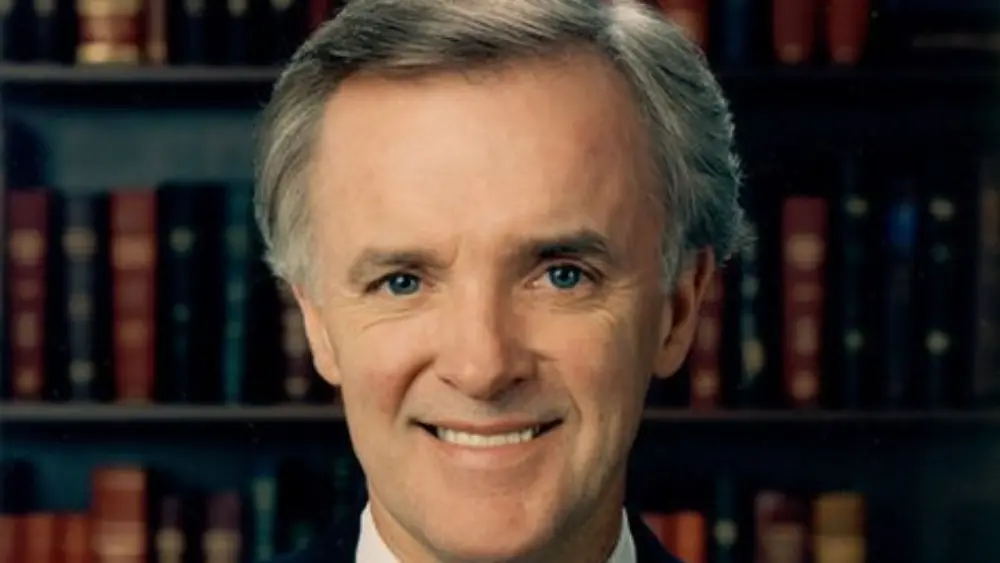Bob Kerrey, born on August 27, 1943, is an American politician and former Navy SEAL who rose to prominence for his service in the Vietnam War and went on to become the Governor of Nebraska. Kerrey’s remarkable journey is characterized not only by his military valor but also by his extensive public service and leadership roles in both the military and political spheres. Beyond his courageous actions on the battlefield, he seamlessly transitioned into a distinguished career in public service. Moreover, his leadership acumen, honed in the military, found new expressions in the political arena. Furthermore, his ability to navigate diverse environments exemplifies the versatility that defines his legacy.
Early Life and Military Service: Vietnam War Hero
Bob Kerrey’s early life and military service are integral parts of his narrative. Hailing from Lincoln, Nebraska, he embarked on a path of service by enlisting in the United States Navy in 1966. This decision led him to become a Navy SEAL, an elite and specialized branch of the military. It was during his service in Vietnam that Kerrey, in a pivotal moment of exceptional bravery, ultimately earned the Medal of Honor for his actions. In the crucible of wartime challenges, he displayed unwavering courage and valor. Additionally, his selfless acts not only exemplified personal bravery but also showcased a profound commitment to duty and comradeship.
Kerrey’s heroic deeds during the Vietnam War became a defining chapter in his life. Subsequently, these actions not only earned him the Medal of Honor but also had a lasting impact on his character. Moreover, the significance of his wartime experiences extended beyond personal achievements. Additionally, they profoundly influenced his perspective on leadership and shaped his commitment to service. Furthermore, the valor he displayed in Vietnam became a touchstone for his later endeavors. The Medal of Honor, the nation’s highest military decoration, symbolized his selfless courage and dedication to the well-being of his fellow servicemen. His experiences in Vietnam would go on to shape his outlook on leadership, public service, and the profound impact one individual can have in the face of adversity.
Bob Kerrey: Medal of Honor Recipient
Bob Kerrey’s military legacy is immortalized in his receipt of the Medal of Honor, an accolade that speaks to his exceptional valor during the Vietnam War. The Medal of Honor is reserved for those who exhibit conspicuous gallantry and intrepidity at the risk of their lives above and beyond the call of duty, and Kerrey’s actions met and exceeded these criteria. His heroism, which earned him this prestigious decoration, showcased his unwavering commitment to his fellow servicemen and the principles of duty and sacrifice.
Kerrey’s receipt of the Medal of Honor stands as a testament to the profound impact one individual can have in the theater of war. Beyond the specific actions for which he was honored, it underscores the broader qualities of courage and leadership that define military service. This recognition has become an integral part of Kerrey’s identity, shaping his subsequent endeavors in public service and leadership roles as he carried the values forged in the crucible of war into his contributions to society.
Post-Vietnam Transition: From Combat to Civilian Life
Leaving the military marked a significant transition for Bob Kerrey as he navigated the shift from the rigors of combat in Vietnam to the complexities of civilian life. The experiences and challenges he faced on the battlefield left a lasting mark on his perspective of the world. The transition from a war zone to civilian society is a formidable journey for many Veterans, requiring them to reconcile their wartime experiences with the demands and expectations of a different reality. For Kerrey, this period of adjustment was marked by a deep introspection into the nature of leadership, sacrifice, and the moral responsibilities inherent in positions of authority.
Kerrey’s post-Vietnam transition became a crucible that shaped not only his personal life but also his subsequent contributions to public service. His experiences served as a foundation for a broader understanding of the human cost of war, and this newfound perspective influenced his approach to leadership in the years that followed. Kerrey’s ability to draw lessons from his military service and apply them to civilian challenges reflects the resilience and adaptability often demonstrated by Veterans as they reintegrate into society.
Bob Kerrey: Leadership Lessons from Vietnam
Bob Kerrey’s leadership journey post-Vietnam was deeply influenced by the lessons he gleaned from his military service. The crucible of war provided him with a unique perspective on leadership, resilience, and adaptability, lessons that he carried into his civilian life. Kerrey’s commitment to translating these insights to contexts beyond the battlefield became evident in his subsequent roles in public service.
In his endeavors outside the military, Kerrey sought to instill the values of resilience and adaptability into the fabric of his leadership. Whether navigating the complexities of politics or addressing the challenges of education, he drew upon the principles forged in the crucible of Vietnam. By doing so, Kerrey not only honored the sacrifices and experiences of his fellow servicemen but also demonstrated a commitment to fostering effective and principled leadership in the civilian realm. His leadership lessons from Vietnam became a guiding force, shaping his approach to challenges and influencing those who worked alongside him in various capacities.
Entry into Politics: Governor of Nebraska
Bob Kerrey’s entry into politics marked a significant chapter in his career, signaling a transition from military service to public service. In 1982, he successfully ventured into electoral politics by securing the position of governor in Nebraska. In this new role, Kerrey brought a wealth of experience from his diverse background, having served as a Navy SEAL in Vietnam and later navigating the complexities of civilian life.
As governor, Kerrey leveraged his leadership skills honed in the military to address key issues affecting Nebraskans. His focus on education, healthcare, and economic development showcased a commitment to the well-being and prosperity of the state’s residents. Drawing on the lessons learned in Vietnam and his subsequent civilian endeavors, Kerrey approached governance with a perspective shaped by resilience, adaptability, and a dedication to public service. His tenure as governor reflected a continuation of the values instilled in him during his military service, demonstrating a seamless transition from combat leadership to effective governance.
Bob Kerrey: Education and Economic Reforms
During his time as governor of Nebraska, Bob Kerrey demonstrated a commitment to addressing crucial issues by implementing significant reforms in education and economic policies. Recognizing the pivotal role of education in a state’s prosperity, Kerrey worked towards enhancing the quality of Nebraska’s educational system. His reforms aimed at improving school standards, promoting innovation in teaching methods, and ensuring that students received a high-quality education that would prepare them for the challenges of the future.
In addition to his focus on education, Kerrey directed attention towards economic reforms that aimed to stimulate growth and improve the overall economic well-being of Nebraskans. His policies sought to create a business-friendly environment, attract investments, and generate employment opportunities for the residents of the state. Through these efforts, Kerrey demonstrated a holistic approach to governance, addressing both the immediate needs of the education system and the long-term economic prospects of Nebraska. His time as governor reflected a proactive leadership style, marked by a dedication to fostering positive change and progress in various facets of the state’s infrastructure.
U.S. Senate Career: Legislative Leadership
Bob Kerrey’s transition from the governorship to the U.S. Senate marked a continuation of his commitment to public service and legislative leadership. As a U.S. Senator from Nebraska, Kerrey became a prominent figure known for his advocacy on a range of crucial issues. Healthcare was one of the focal points of his legislative efforts, where he worked towards expanding access and improving the quality of healthcare services for Americans. His dedication to the well-being of citizens extended to Veterans’ affairs, where he championed initiatives to support and honor those who had served in the military, drawing on his own experiences as a Vietnam War Veteran and Medal of Honor recipient.
In addition to his impactful work in healthcare and Veterans’ affairs, Kerrey actively engaged in matters of fiscal responsibility. Beyond his dedication to specific policy areas, he emphasized the overarching importance of prudent financial management and government accountability. Moreover, he consistently advocated for transparency in fiscal matters. Furthermore, his commitment extended to fostering a culture of responsible budgeting. His legislative approach reflected a pragmatic and comprehensive understanding of the diverse needs of his constituents. Throughout his Senate career, Kerrey’s leadership underscored his commitment to shaping policies that would positively impact the lives of Nebraskans and Americans at large, showcasing his dedication to public service at the national level.
Bob Kerrey: Veterans’ Advocacy
Bob Kerrey’s dedication to Veterans’ advocacy stemmed from his personal experiences as a Vietnam War hero and Medal of Honor recipient. Throughout his Senate career, he tirelessly championed the cause of Veterans, working to enhance the support and services available to those who had served in the military. Kerrey astutely comprehended the unique challenges faced by Veterans transitioning to civilian life. In his efforts to address multifaceted issues, such as healthcare, education, and job opportunities for returning service members, he demonstrated a comprehensive understanding of the complexities involved. Furthermore, his advocacy extended beyond mere acknowledgment; he actively pursued solutions to create a positive impact. Additionally, his commitment to supporting Veterans’ integration into civilian society underscored a broader vision for societal well-being.
Recognizing the sacrifices made by Veterans, Kerrey’s advocacy extended to ensuring that they received the recognition and assistance they rightfully deserved. He used his position in the Senate to push for policies and programs that would improve the lives of Veterans and their families, demonstrating a steadfast commitment to honoring and supporting those who had served their country. Through his work with Veterans Affairs, Bob Kerrey established a lasting legacy of advocacy, profoundly impacting the lives of countless veterans across the nation.

Post-Senate Years: Continuing Public Service and Leadership
In the post-Senate phase of his career, Bob Kerrey seamlessly transitioned into roles that allowed him to continue his commitment to public service and leadership. One notable position he held was that of the president of The New School in New York City. In this capacity, Kerrey brought his wealth of experience and insights to the realm of education and civic engagement. Under his leadership, The New School flourished as an institution that prioritized innovation and progressive ideals, aligning with Kerrey’s dedication to making a positive impact on society through education.
Kerrey’s post-Senate years exemplified his versatility and ongoing dedication to shaping the future. Whether in the realm of educational leadership or other civic engagements, he consistently demonstrated a commitment to the betterment of communities and institutions. Moreover, his dedication extended beyond conventional boundaries. In addition to his role in education, he actively participated in various community initiatives. His ability to transition seamlessly from politics to academia showcased his enduring commitment to public service and his belief in the power of education as a force for positive change.










